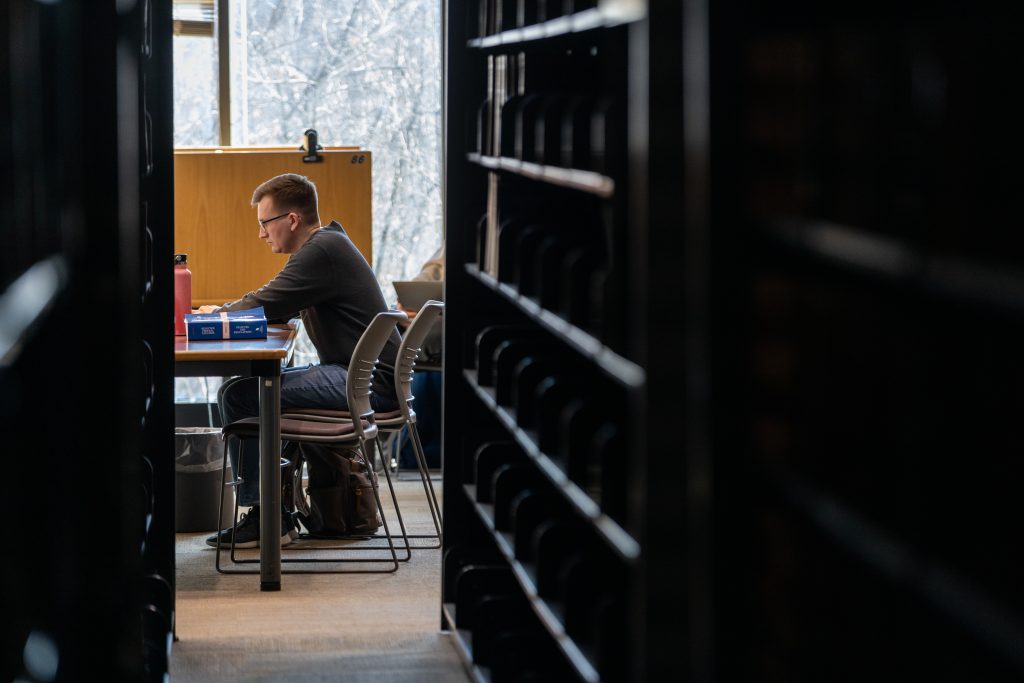
A JD from Mizzou Law means you are ready for the job market after graduation. Our class of 2022 has a bar passage rate of 93%, beating the statewide passage rate of 88%. Our 2021 class employment rate stands at 97.6%, which ranks 12th nationally. Of those employed, 97% are in Bar Required or JD Advantage jobs.
Program Overview
The Juris Doctor (JD), or law degree, is a three-year post-baccalaureate program. Students must complete 89 credit hours of law courses, roughly one-half of which are required courses. Students often describe the academic atmosphere at MU as challenging, but with an emphasis on learning rather than competition. Courses offer students a broad and balanced perspective on the law and legal institutions to prepare them for a wide range of career options in law, as well as alternative careers anywhere in the country.
Learning Outcomes
Upon completing their education at the University of Missouri School of Law, graduates will be able to:
- Demonstrate foundational knowledge and understanding of substantive and procedural law.
- Demonstrate the ability to employ legal analysis, legal reasoning, factual development, problem-solving skills, and communication skills.
- Fulfill professional and ethical responsibilities to clients and the legal system.
- Develop the ability to act as leaders in the profession, in our state, and in promoting justice.
Curriculum Pathways
At Mizzou Law, you can customize your law school experience by selecting a curriculum “pathway” that focuses on an area of law that interests you personally. Doing so can provide you with a deeper knowledge of the area and a broader set of relevant skills, as well as relationships with faculty knowledgeable in the field, who may serve as mentors along the way.
- Civil Litigation
- Civil Rights, Public Interest and Public Policy
- Criminal Law and Justice
- Dispute Resolution
- Employment and Labor Law
- Estates and Trusts and Estate Planning
- Family Law
- Government and Administrative Law
- Health Law
- Intellectual Property, Technology and Entrepreneurship
- International, Comparative, and Transnational Law
- Real Estate, Property, Land Use and Environmental Law
- Sports, Entertainment and Arts Law
- Tax Law
- Transactional, Corporate and Business Law
Concentrations & Certificates
The Tax Law concentration is designed to provide each student in the concentration basic education in both general skills and subject-matter specific knowledge and provide each student with an opportunity to bring the entire skill set to bear in a capstone experience designed to teach integrated legal problem-solving. Completion of a concentration should improve the overall preparedness of graduates by conferring entry-level competence to begin practicing law with appropriate supervision in the concentration’s subject matter area or practice setting.
Clients and society today need and expect much more than traditional advocacy from their lawyers. Modern lawyers need to be able to address legal problems in ways that accommodate a variety of needs, goals and values, in addition to vindicating legal rights. As a result, today’s lawyer must have the knowledge, skills and perspectives not only to advocate in the courtroom but to participate in such processes as client counseling, negotiation, mediation, arbitration and creative problem-solving.